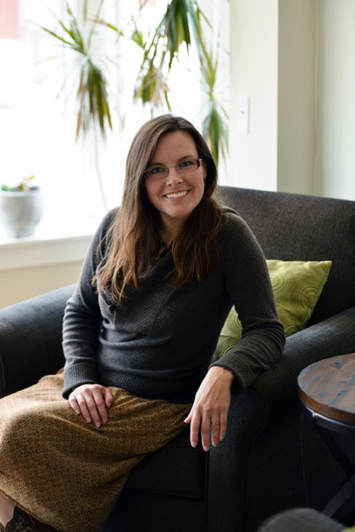
Kate recently completed three years of herbal training with David Winston, who is one of the leading herbal teachers in North America, internationally known lecturer, author and ethnobotanist, and the founder of Herbalist & Alchemist. She was selected as a featured student in his monthly interview column. Read up on Kate's story and what motivated her to choose this path.
Originally published on
http://www.herbalist-alchemist.com/idws32.html
Where Are They Now?
Kate Bodmann RH (AHG), RA
Land of Milk and Honey Herbs, Omaha Whole Living
What first seized your interest about herbal medicine?
Plants have played a part in my life in different ways over the years. I was an avid gardener and urban farmer for years. I worked as a Master Gardener for a few years and started and ran a youth garden in our neighborhood. Working in the office at The Nature Conservancy for almost a decade, I had learned some about native plants. While all of those experiences connected me somewhat to plants, a whole different world opened to me when I learned of the use of medicinal plants. Previously a plant had been just an image and a name to remember, and there wasn’t much excitement to that learning process. Once I learned a medicinal use for a plant, that knowledge became so much more alive. No longer were plants just something to be studied or appreciated from afar. It has become almost an obsession to learn more.
When did you begin formal herbalist training and with whom? How has that shaped your practice?
I first began formal training with Nicholas Schnell in 2011. I think that who you study with will guide you in how you assess your clients. It will always somewhat inform how you go about creating formulas and what herbs and traditions you lean towards. Nicholas has a very warm, friendly approach yet still maintains a very busy practice which is nice to see.
After studying with Nicholas for three years I was able to apply for and be accepted as a Registered Herbalist (RH). I went on to study with David Winston for the last three years. There is simply so much herbal knowledge out there that I don’t think you can ever stop learning. We absorb what we can from all our teachers and then integrate it or change it to make it fit our own style or personality—growing, growing, growing all along the way.
How do you describe to your clients and students the differences in herbal products made by herbalist staffed companies like Herbalist & Alchemist compared to mass market offerings?
I only recommend brands that I know are trusted herbalist-driven companies. As an herbalist one can often look at a brand and quickly tell a product is a hodge-podge of herbs that simply were thrown together based on hype of certain herbs as opposed to put together based on knowledge or experience. We have great local and national companies that are owned and operated by herbalists that deserve our support.
I was impressed with how well you explained aspects of herbal medicine in describing your approach in the video and written sections you have on your website. Have you always been such a good communicator or did you take your cue from confused potential clients?
Thank you! In our area, herbalism is not that prominent so I feel that we often need to really explain what we do. Most people have little experience with herbs beyond essential oils, so they assume you just sell a product and they don’t understand that herbal medicine is a whole system of healing. I am an outspoken advocate for herbalism in our greater community. One of my fellow herbalists often says, “Get to Kate’s herb class and get EduKated.“ I spend a lot of time in community (on-line and in person) answering questions and generally providing wellness and herb related advice. I also have a very sattvic (teaching relationship) style in my approach with my clients. I want them to better understand their own body, mind, and spirit every time they come to visit me.
You’ve created an interesting environment with Omaha Whole Living, which is more than just a place for you to see clients. How all the different practitioners using it complement each other?
OWL came out of a desire to create a community of alternative practitioners who work cooperatively. I love having others use the space, as it really keeps it feeling full of life. I have a large space with a large open classroom, apothecary, consultation room, client room, workshop, and massage/reiki room. While I need some of this space, I only work part-time as I also homeschool my children, so it feels natural to share the space with others. My primary goal was also to create what I wish had existed for myself. For several years as I saw clients out of my own home I yearned for a place that I could rent for a reasonable price for classes or for seeing clients without having to commit to a huge rent all by myself.
I rent community space by the hour or some spaces people "own" for one or two regular days a week. This keeps the cost down for them as they grow their business without it being a barrier to their practice or being so expensive that they don’t personally earn anything. The space ebbs and flows every day. Right now I have a team of birth doulas who use this as home base, a Bradley birth class educator, three massage practitioners, a reiki practitioner, a life coach, and a Qi Gong instructor that regularly use the space. Others can rent the space just to host a workshop or gathering as needed. Everyone gets to feel some ownership in being here, but they each only commit to paying for the couple of days a week that they claim the space.
 RSS Feed
RSS Feed
